Once you learn how to make oat flour at home, you’ll never buy it from the store again. We’re sharing our best tips for making oat flour with different types of gluten free oats, how to use it in gluten free recipes, and more!
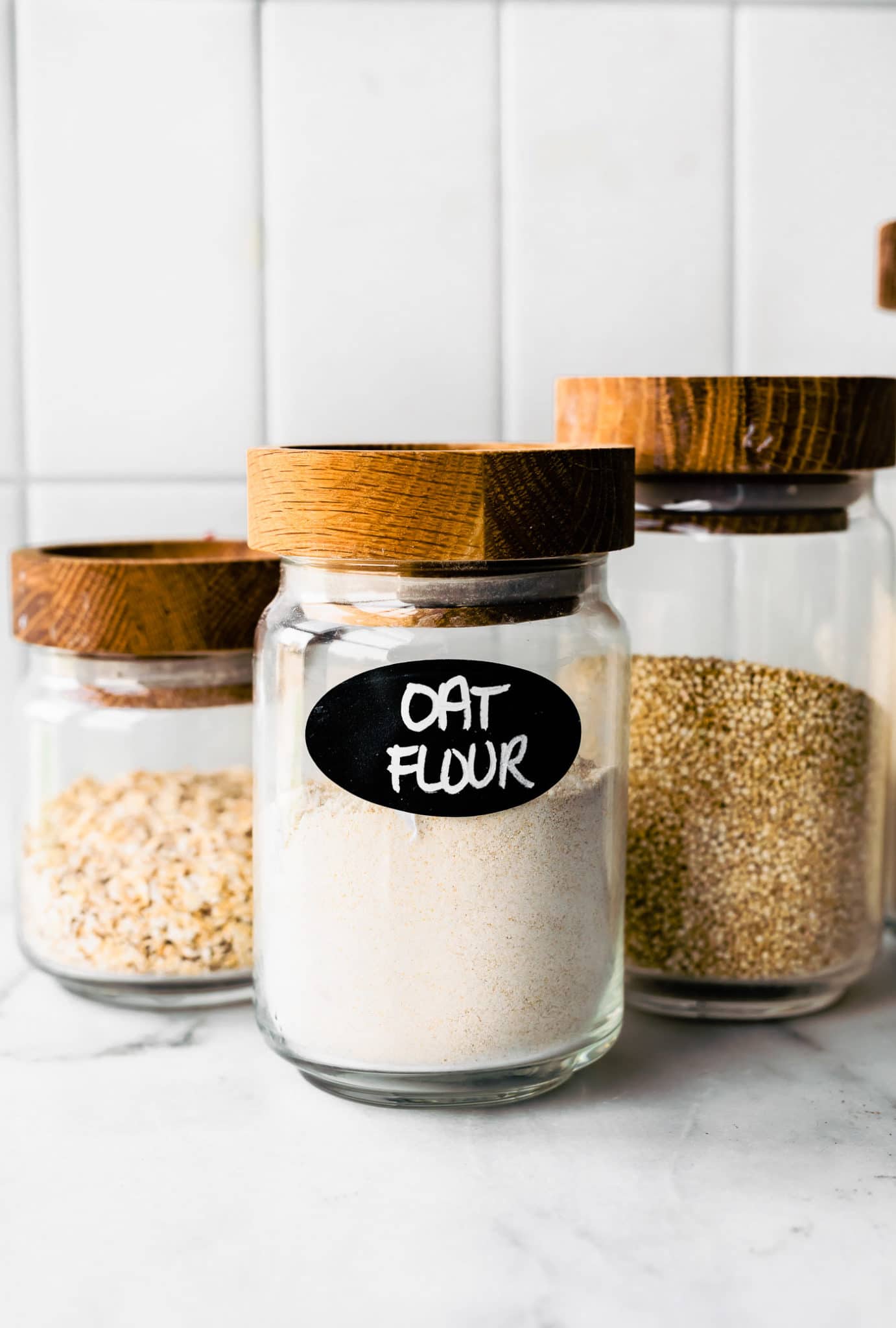
Part 6 of our Gluten Free Grains Month, this blog is part of our Oat series in which we teach you what they are, how to use them, and more to spread knowledge about gluten free grains and help make it easier to follow a gluten free diet without missing out on delicious meals the whole family can enjoy!
The Gluten Free Flour You Need in Your Kitchen!
For us, gluten free oat flour is a staple in our kitchens, because it’s perfect for gluten free baking! It has a fairly mild flavor and also makes a great addition to regular baked goods. No matter how you’re using it, it’s always a great source of vitamins, plant based protein, and fiber. Plus, it’s super affordable to buy at the store or make on your own!
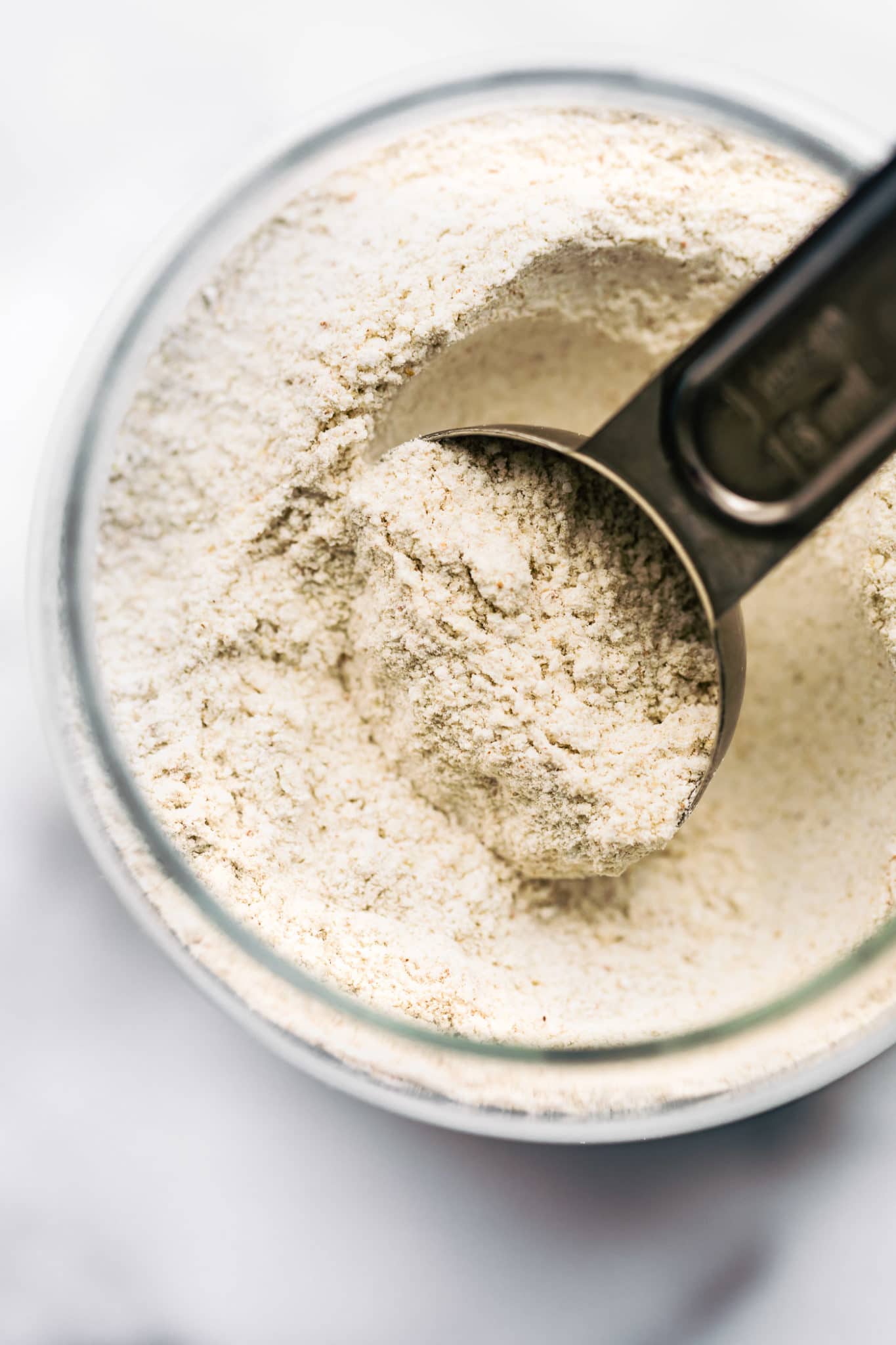
So yes, we’ll walk you through how to make oat flour at home, our tips and tricks on how to use, how to store, AND a little nutrition bonus. Sound good?
So What is Oat Flour?
As the name suggests, oat flour is whole grain gluten free flour alternative made out of whole oats. It’s full of vitamins and nutrients including manganese, selenium, phosphorous, magnesium, and surprisingly enough, omega fatty acids! (Source)
As a result, including oat flour in your diet can help:
- Reduce the risk of heart disease
- Lower cholesterol
- Help manage diabetes
- Decrease blood pressure
- Regulate digestion
Is All Oat Flour Gluten Free?
All oat flour made from certified gluten free oats is, yes! However, it’s crucial to look for a label stating that the oats used were manufactured in a certified gluten free facility. More often than not, they come into contact with other gluten-containing grains while being processed.
Allergy Note: Although gluten is not naturally found in oats, they do contain a protein called Avenin that may cause a similar reaction as gluten in those that have been diagnosed with
Celiac Disease. If you suspect you have sensitivities to oat flour, it is best to consult with your doctor! (Source)
How to Make Gluten Free Oat Flour
It may look intimidating, but learning how to make oat flour couldn’t be easier (or more budget-friendly)! Take a look below to see how it’s done.
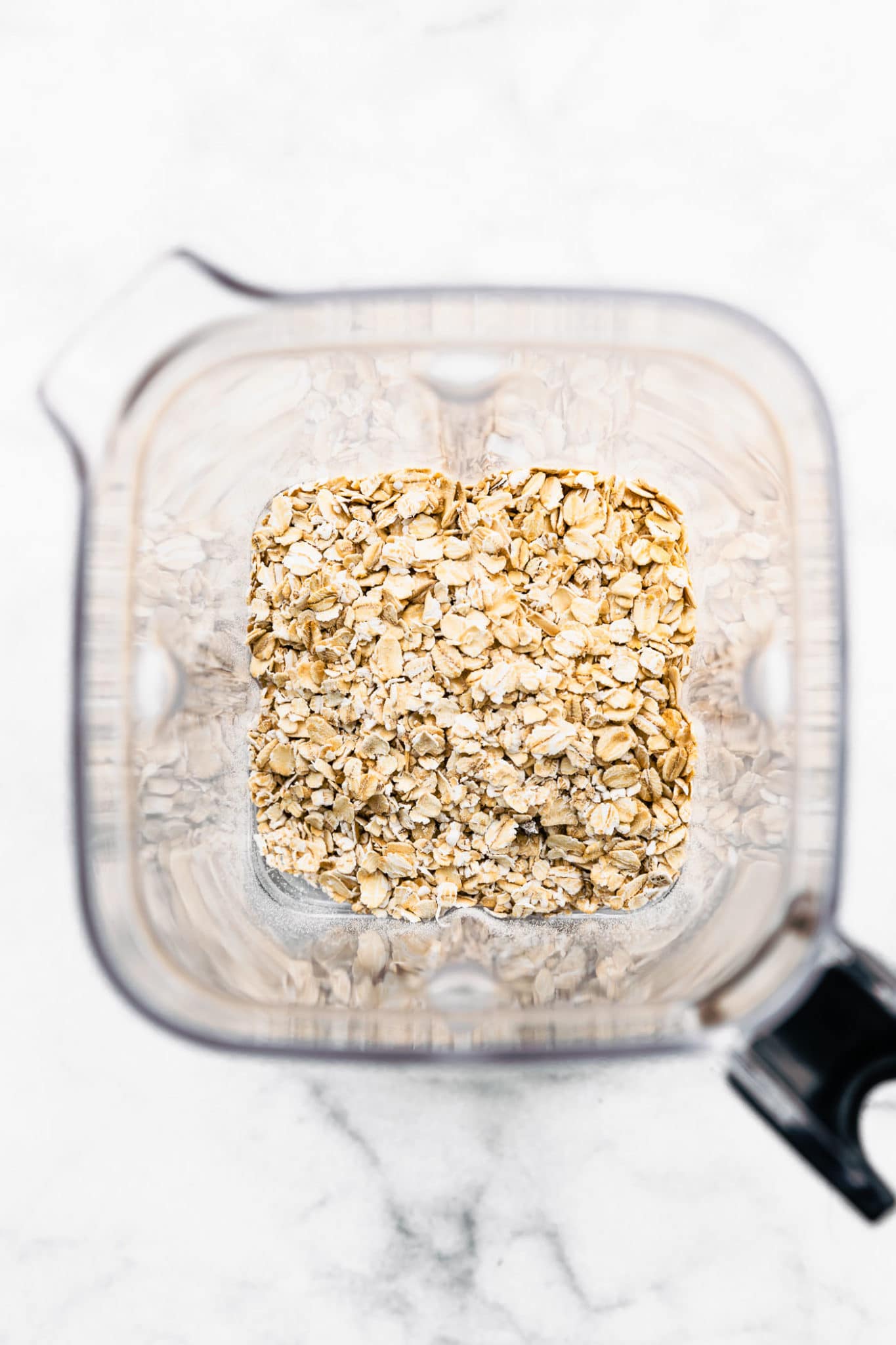
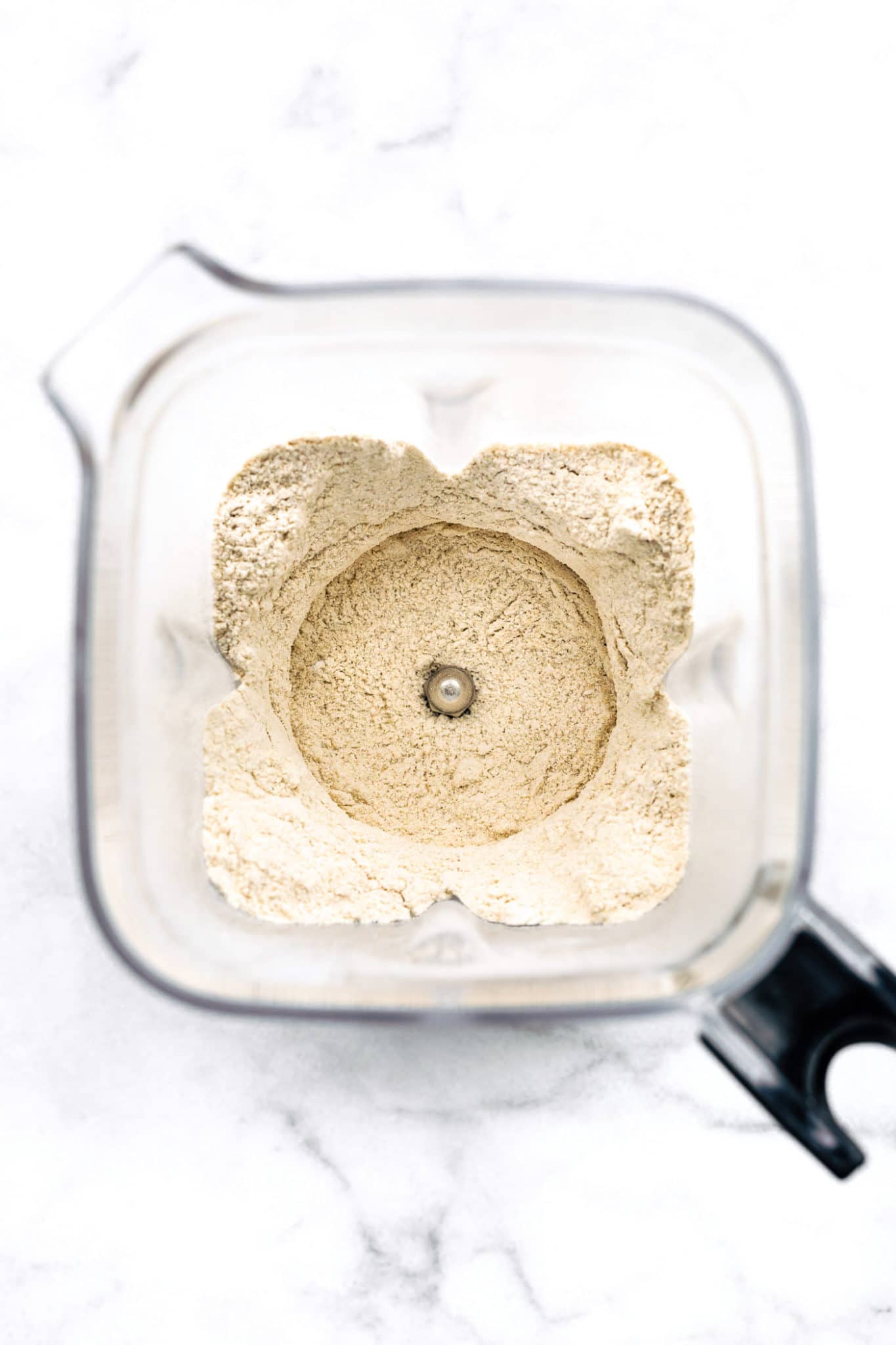
- Using a food scale, measure out 2-3 cups of gluten free oats in grams.
- Add 1-2 cups of whole oats to a high-speed blender.
-
Blend until a flour-like consistency is formed. About 30 to 45 seconds depending on the cut of oat.
- Transfer the oat flour to a glass jar or airtight container, and repeat until all of the whole oats have been ground.
Rule of Thumb – In most cases, 1 ¼ cups of rolled oats makes around 1 cup of oat flour!
Does It Matter What Type of Oats I Use?
No! Steel cut, rolled, and quick oats can all be used to make oat flour. However, the taste and texture will vary slightly based on the type and brand of oats you use. For instance, we found that steel cut oats had a slightly earthier flavor and darker hue than other varieties. (See photos below.)
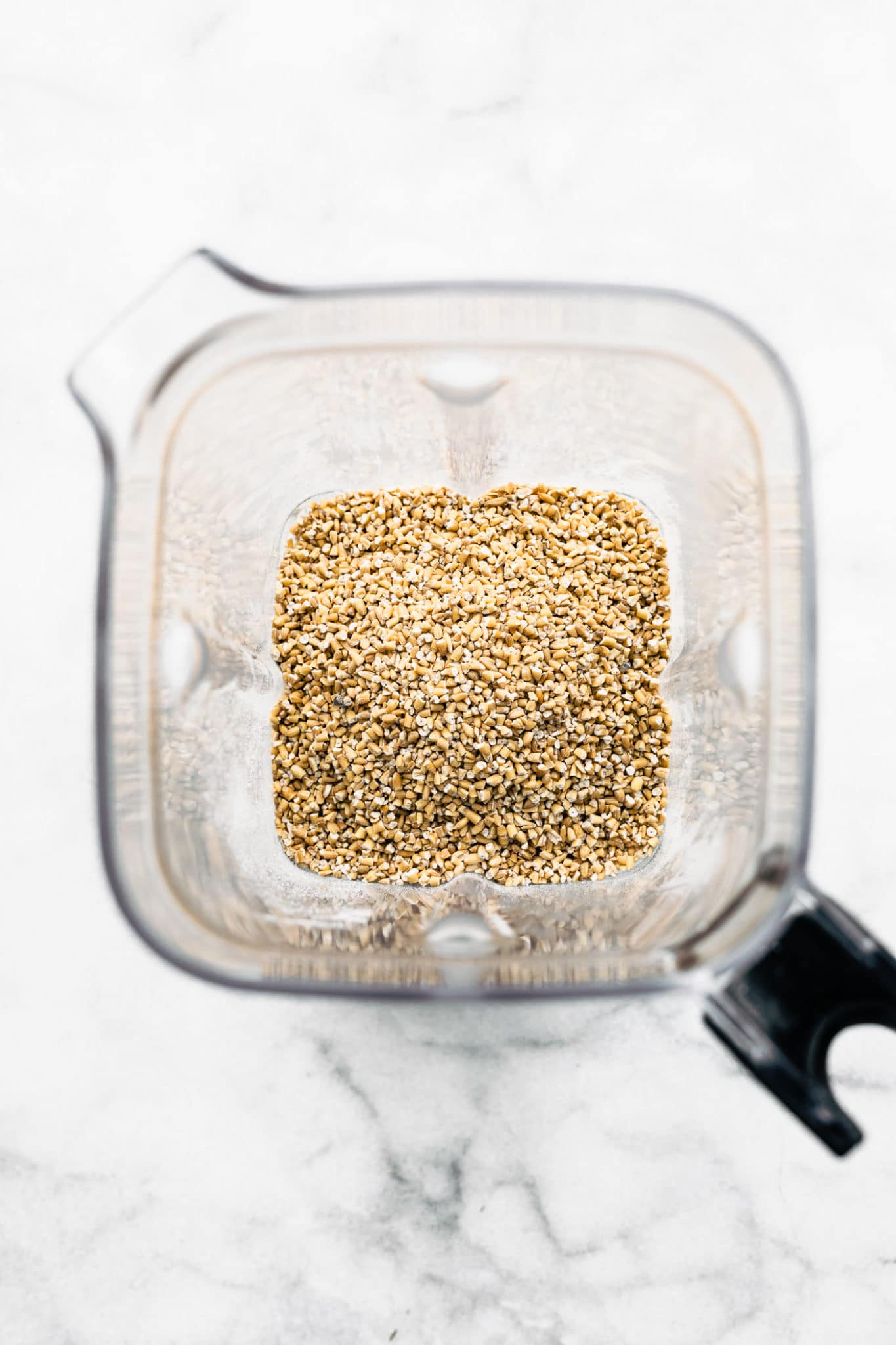
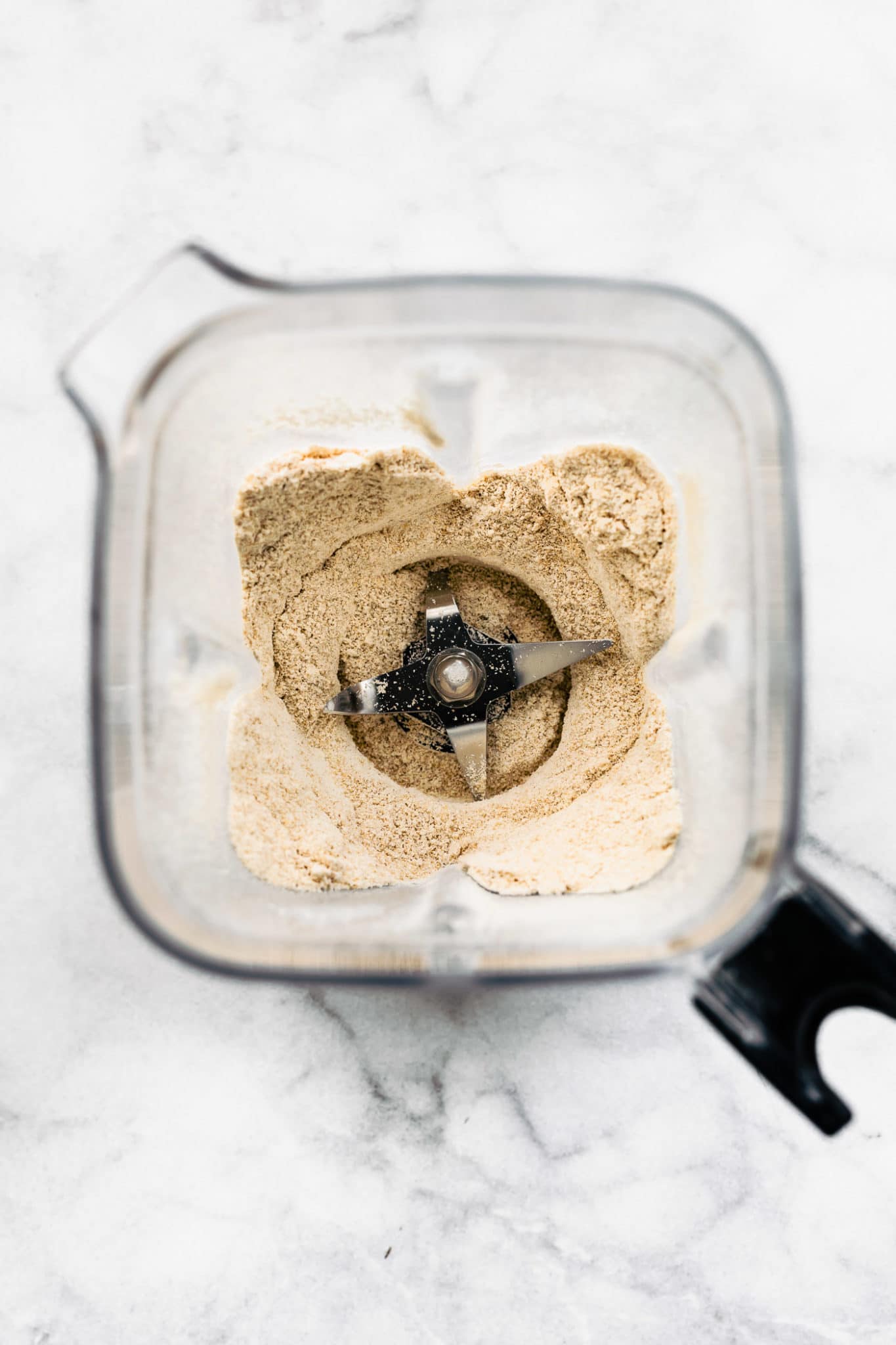
When measuring oats or oat flour, it’s best to weigh in grams versus using a measuring cup, especially when baking! This is because each oat has a slightly different density and particle size. Therefore, the amount of flour that fits in 1 cup varies based on the particle size of the type of oat used.
When to Use Oat Flour
Obviously, oat flour works best with recipes that are originally created with it. However, it can be used as a substitute as well, and there are a few tips that will help you know when you can include it.
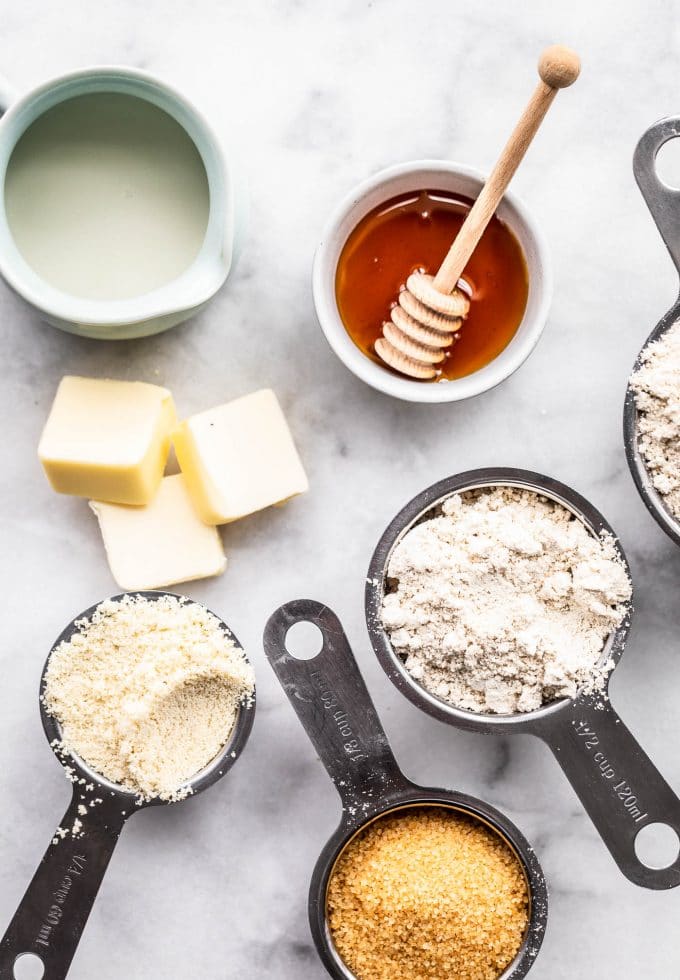
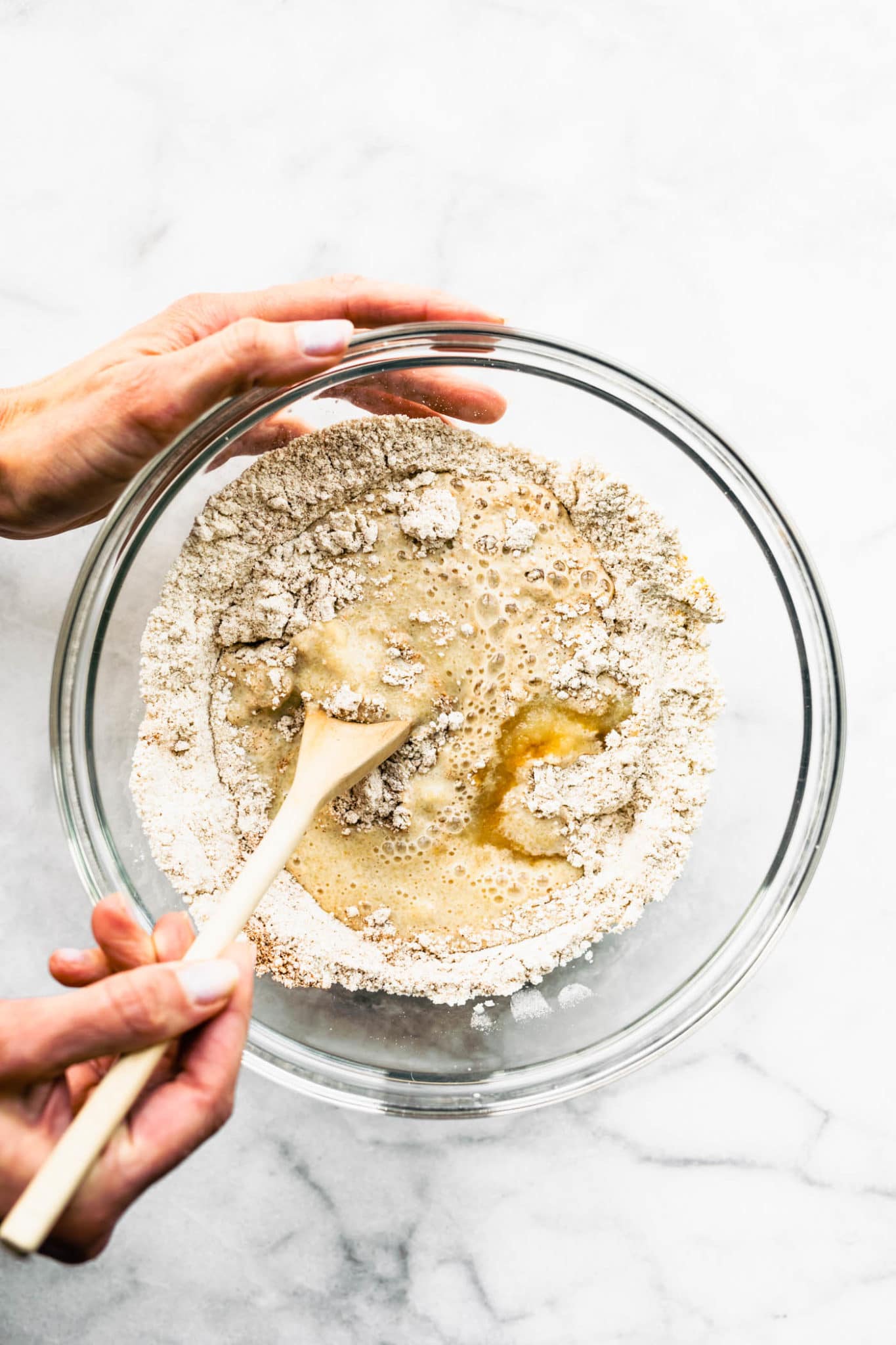
Baking Tip: We like to use oat flour combined with a fattier flour like almond flour when baking to add moisture to the recipe like in these peanut butter cookies and our favorite sugar cookie mix!
- In Combination with Eggs. In recipes that contain eggs, it’s usually safe to swap out gluten-containing flour for oat flour. In absence of gluten, the eggs will act as a binder, working to hold the ingredients together and maintain the structure of whatever is being baked.
- Gluten Free Alternative for All-Purpose Flour. In most recipes, oat flour can be used as a 1:1 substitute for all-purpose flour when it is measured by weight and not cups.
Gluten Free Oat Flour Recipes
Whether you’re following a guten free diet or not, oat flour makes for an easy, nutritious flour alternative. It’s great for a wide variety of foods including pancakes, breads, muffins, crisps, and more! To get you started, we’ve gathered a few of our favorite oat flour recipes.
- Homemade Gluten Free Graham Crackers (Vegan Option)
- Orange Coconut Oatmeal Muffins
- Easy Oatmeal Crepes (Vegan Option)
Storage
Homemade whole grain flours do not last as long as refined flours, because they contain natural (good for you) oils. Furthermore, if they’re exposed to air they oxidize quickly. So, it’s important to store your oat flour in an airtight container! When kept at room temperature, it can be kept and used for up to 3 months. Or, to extend the shelf life, place it in the freezer for up to 6 months!
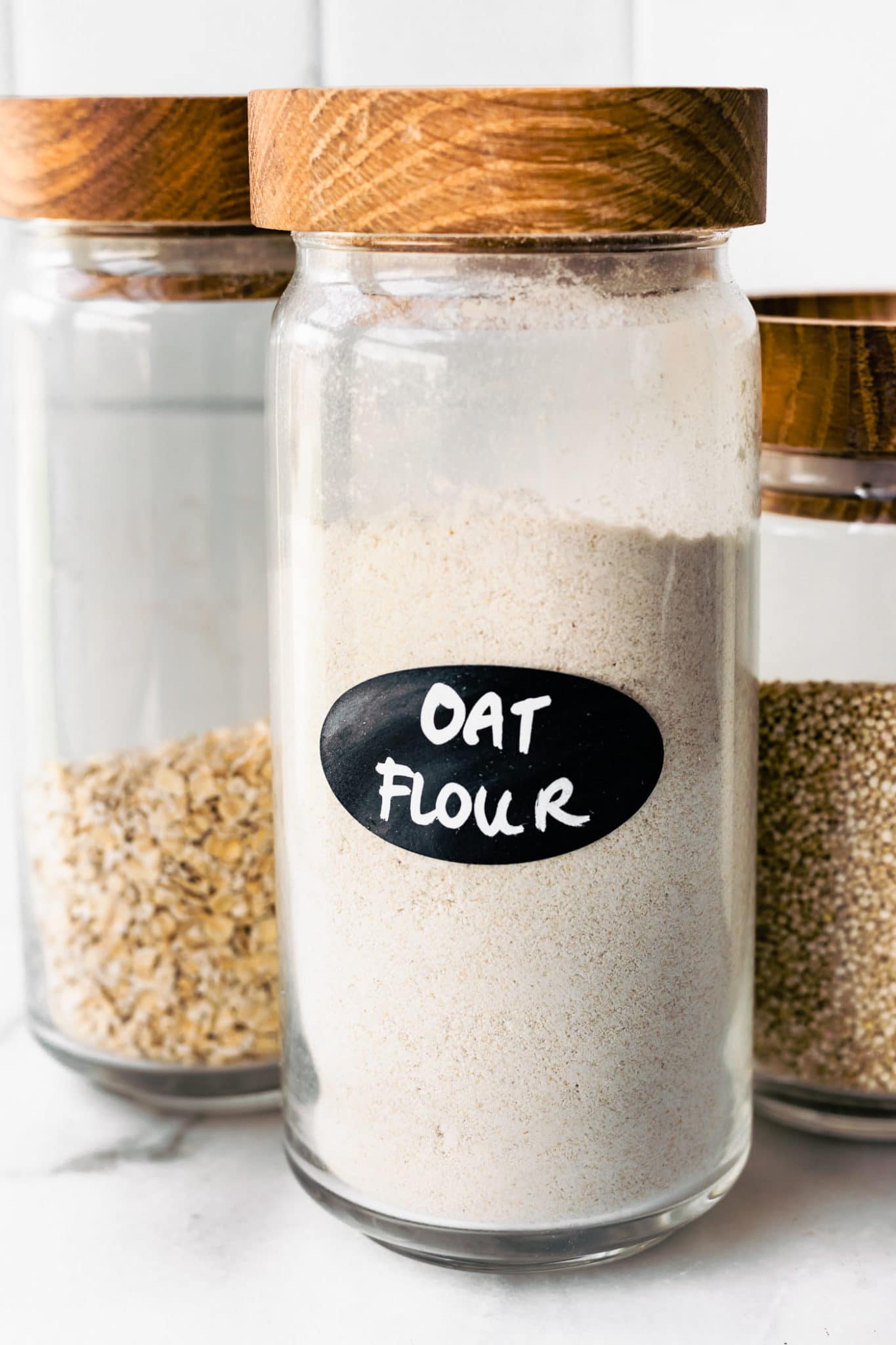
Common Questions
What is healthy is different for everyone based on their individual dietary needs, lifestyle, and preferences. However, in many cases, oat flour is a great option for those following a gluten free diet! It contains more nutrients, is lower in carbs, and has less sugar than wheat flour. That said, there is nothing “wrong” with wheat flour as long as it is tolerated by your body!
Yes! Fairly sweet, oat flour has a slightly nuttier taste than regular flour but can easily take on the flavor of whatever it is paired with.
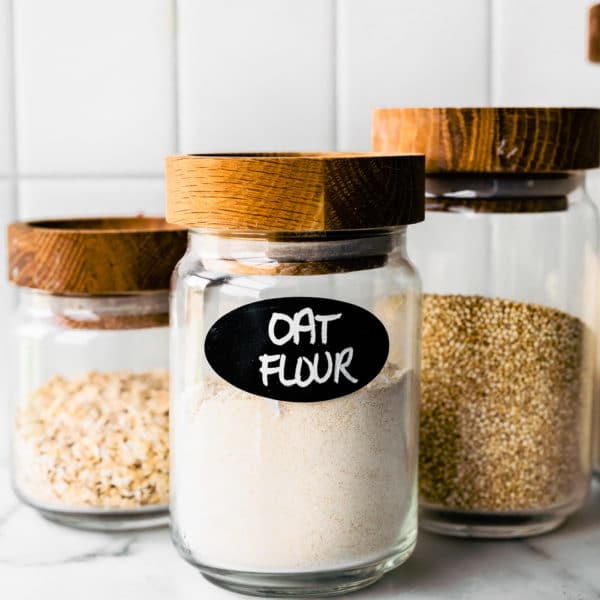
How to Make Oat Flour
- Author: Lindsay Cotter
-
 Total Time: 5 minutes
Total Time: 5 minutes -
 Yield: 1 cup oat flour
Yield: 1 cup oat flour - Diet: Gluten Free
Description
Learn how to make oat flour for all your gluten free baking needs! All you’ll need are gluten free oats, a blender, and a couple of minutes!
Ingredients
- 2–3 cups gluten free oats (rolled, quick, or steel cut)
Instructions
- Place 1-2 cups oats in a high-speed blender or food processor at a time.
- Blend or pulse for around 45 seconds or until a fine flour-like consistency is formed. NOTE – Steel cut oats may take longer to blend. Begin by blending the oats for 45 seconds, scrape sides, and repeat for a total of 90 seconds to 2 minutes or until a fine flour is formed. Transfer the ground oats to a glass jar or bowl.
- Repeat with the remaining oats.
- Store at room temperature for 2-3 months. Or freeze up to 6 months.
Notes
Storage Tip – Whole grain gluten free flours contain natural oils. So, the shelf life is not as long as that of refined flours.
Measuring Tip – In most cases, 1 ¼ cups of gluten free rolled oats makes around 1 cup of oat flour.
-
 Prep Time: 2 minutes
Prep Time: 2 minutes
-
 Cook Time: n/a
Cook Time: n/a
-
 Category: Baking
Category: Baking
-
 Method: Blend
Method: Blend
-
 Cuisine: American
Cuisine: American
Keywords: flour, oats, gluten free, baking, oat flour

We hope this article was helpful! If you have any more questions about how to make oat flour or ways to use it, feel free to let us know in the comments below! We’re happy to help!
